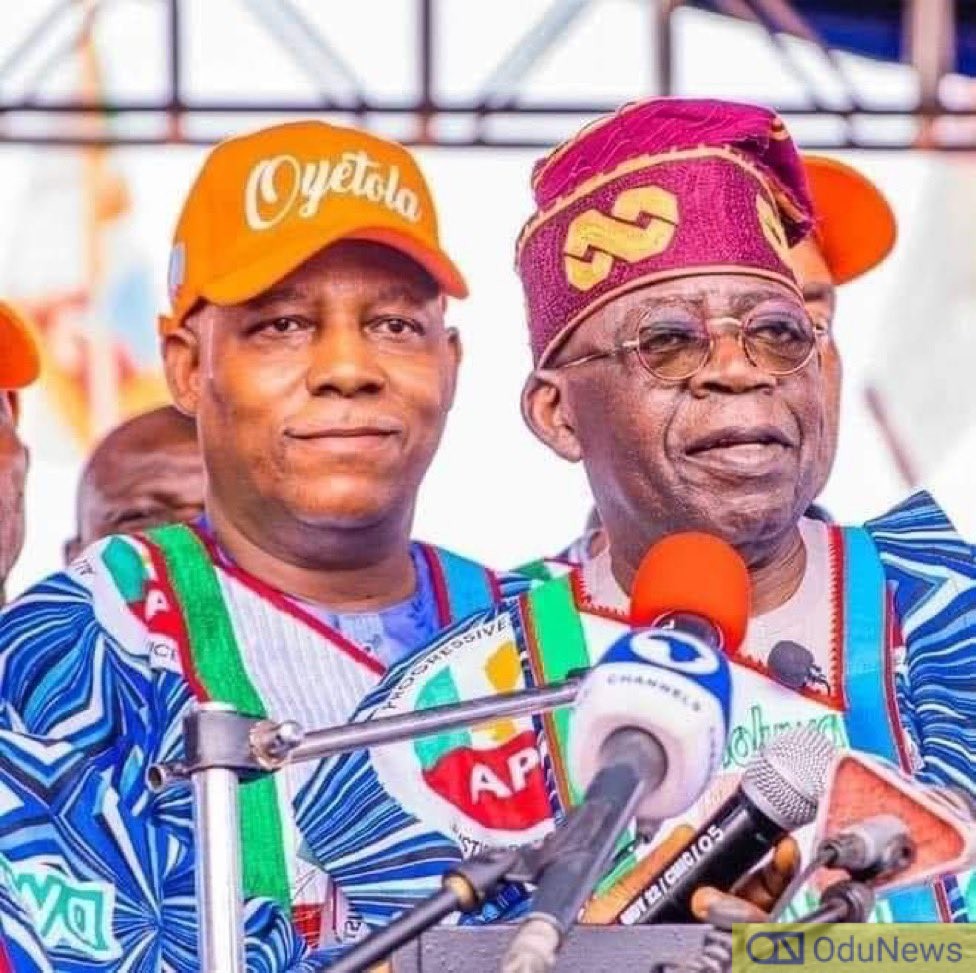By presenting a Muslim-Muslim ticket, the All Progressives Congress has put to bed the discourse surrounding the faith of its presidential and vice-presidential candidates for the 2023 presidential election. What then will this translate to?

Tinubu’s choice of Kashim Shettima as his running mate sparks a reminiscence of Moshood Abiola’s decision to pick Babangana Kingibe ahead of the 1993 election which was eventually annulled by the Military regime headed by Gen. Ibrahim Babaginda. That was the last time the Nigerian political scene saw such a ticket presented by a major party. The APC has done otherwise and it must have been a difficult decision to reach.
In 1993, there are religious and tribal sentiments being manifested in the political space but they cannot be compared to anything close to the country’s reality in 2023. Nigeria has become a highly polarised nation, thanks to the opinion leaders who have foregrounded tribe and religion to suit their interests. This is why the fears raised by those against the APC producing a Muslim-Muslim ticket are valid. Even if the running mate is a ‘dummy’, his faith needs to reflect the diversity of the country.
Albeit similar, Abiola’s decision to pick a Muslim running mate in 1993 has a different context when compared to 2023. At that point, many Nigerians did not bother about the faith of whoever sought to be a leader. The populace wanted change, progress and freedom from the shackles of military tyranny. Abiola was the fantasy of many Nigerians. He preached those pressing demands of the people and wrapped them up in a message of hope. Abiola campaigned on the slogan ‘Hope 93’ and this resonated with many electorates across boards. The result was a resounding victory for Abiola’s SDP.
The APC and Tinubu’s realities are different from Abiola’s SDP. Just like in 1993, Nigerians need salvation. They want a candidate who will do things differently from what the present and previous administrations have done. There is no change Tinubu wants to preach. He preached this in 2015 already and the results of the change appear not to have changed the fortunes of most Nigerians. That is why this election cannot be compared to the 1993 polls. Asides from the sameness of Kingibe and Shettima concerning tribe and religion, the 2023 election will present different dynamics.
It should be said that the ruling party cannot be ruled out from emerging victorious in the polls. The choice of Shettima is strictly political as that will appeal to the populous northern Muslim voters. All political parties serious about winning the 2023 presidential election presented tickets that would appeal to the sensibilities and peculiarities of the country’s voting population. Atiku’s decision to pick Okowa is to garner votes of the South-South and South-East electorates, Peter Obi’s choice of Baba-Ahmed is to entice the northern Muslim voters. This is the same for all political parties contesting for the presidential seat.
The APC’s choice is no exception as it must have restricted its choice to a candidate who is popular among the majority of voters from the region. In all of this, the Southern Muslim is at a disadvantage just like the Northern Christian. A Southern Muslim has never been sworn in as Nigeria’s president and the reason is not far-fetched. The majority of the northerners believe that their interests will be well attended to by someone who shares the same faith as they do. A Christian northerner would not pull the same numbers as a Muslim northerner. This might be inconsequential in the south in terms of numbers. The Vice-President, Yemi Osinbajo, does not need to be a political heavyweight to emerge as President Buhari’s running mate in 2015. All he needed are strong and staunch supporters irrespective of his faith.
Ordinarily, a Vice President occupies “an awkward office” as US Vice President Walter Mondale once argued. Thomas Marshall, Woodrow Wilson’s Vice President for eight years said “The only business of the Vice President is to ring the White House every morning and ask – what is the state of the health of the President?” The Vice President of Nigeria does not even have as much power as the VP in the United States who has a voting slot in the event of a tie in Congress. Nigeria’s VP is a creation of Section 141 of the 1999 Constitution. He is a member of the Executive Council of the Federation, also, the National Security Council, the Chairman of the National Economic Council, and several parastatals including the National Boundary Commission. His real and relative power however depends upon the duties delegated to him by the President who within the purview of Section 5 of the 1999 Constitution is a monarch, regardless of Section 141 of the Constitution. The value of the Vice President is provided for strictly concerning the obvious purposes of ethnic and geographical balance, federal character, inclusion and willy-nilly, as a spare tyre in the event of the President’s travel on holiday, death, permanent incapacity, removal from office, or resignation as defined in Sections 143 – 146 of the Constitution.
It is a truism that any prospective Nigerian leader must respect the country’s diversity. However, Nigeria is as diverse as it could be. Whoever intends to be the country’s president must have been someone who is not too dogged about his ideologies- whether his tribal or religious affiliation. Nigeria needs to ward itself off the centrality it places on religion especially. It portends danger if the political class and opinion leaders keep employing religion as a tool to bamboozle the masses. There might not be enough time when the effects of fanning such sentiments come home to roost.


Comments are closed.